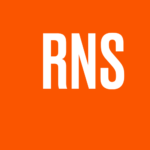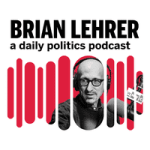Coming Soon: 2025-2026 PRRI Public Fellows Open Call
Fill out this form to be notified when the 2025-2026 PRRI Public Fellows Open Call is published.
PRRI (Public Religion Research Institute) will be accepting applications for a new cohort of non-residential Public Fellows for the 2025-2026 academic year who are engaged in public scholarship at the intersection of religion, politics, and culture. We welcome applicants whose research agendas align with key areas of PRRI’s ongoing work: 1) racial justice and white supremacy, 2) immigration and migration studies, 3) LGBTQ rights, and 4) reproductive health and rights.
The PRRI Public Fellows program promotes and supports interdisciplinary public scholarship of emerging mid-career scholars from across the humanities, humanistic social sciences, and empirical social sciences, including sociology, religious studies, political science, history, ethnic studies, American studies, and literary studies. Mixed method scholars are strongly encouraged to apply. The PRRI Public Fellows program includes an annual stipend, microgrants to foster collaborative new scholarship and professional relationships among the cohort, access to PRRI data, monthly virtual meetings including trainings and workshops, and an expenses-paid, in-person convening in Washington, D.C.
Fellows who successfully complete the program are eligible to apply for a one-time renewal at the end of their first fellowship year, but renewal is not guaranteed.
The PRRI Public Fellows application will require the following:
- Statement of interest: In 800 words or less, please explain your interest in pursuing this fellowship opportunity and your professional development goals in public scholarship
- Work samples: Provide links and PDF copies for your best three (3) public-facing articles published within the last three years. The articles would preferably be published in media outlets, though publications in scholarly journals will also be accepted.
- An updated curriculum vitae
Qualifications:
To be considered for this program, applicants must:
- Be authorized to work in the United States;
- Be three to 12 years out from earning a Ph.D. or comparable terminal degree;
- Hold a formal affiliation with an accredited college, university, seminary, or research institution in the United States;
- Have demonstrable academic expertise at the intersection of religion and at least one PRRI’s areas of work including:
- Racial justice and white supremacy
- Immigration and migration
- LGBTQ rights
- Reproductive health and rights
*Preferred, but not required: Ideal candidates will have an aptitude and track record of socially engaged or public-facing scholarship
For questions, please email public.fellows@publicreligion.org.
PRRI is seeking a diverse cohort in terms of academic disciplines (the humanities, the humanistic social sciences, and the empirical social sciences), types of institutions (college, university, seminary, or research institute housed within an academic institution), and geographic location. PRRI encourages applications from women, people of color, and other members of underrepresented groups who will contribute to the diversity of this cohort.
Public Religion Research Institute (PRRI), founded in 2009, is a nonprofit, nonpartisan organization dedicated to conducting independent research at the intersection of religion, culture, and politics. PRRI research explores and illuminates America’s changing cultural, religious, and political landscape. The organization’s mission is to help journalists, scholars, thought leaders, clergy, and the public better understand debates on public policy issues, and the important cultural and religious dynamics shaping American society and politics.
PRRI is an Equal Opportunity Employer and does not discriminate against applicants because of race, color, religion, national origin, sex, age, disability status, sexual orientation, gender identity or any other class protected by applicable law. We hire and promote individuals based on their qualifications for the job to be filled.


